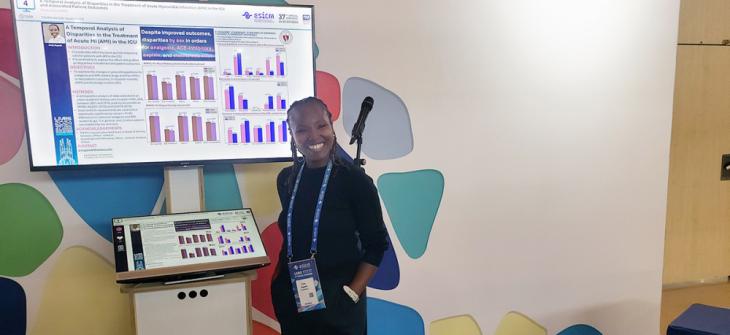A Chance Encounter Sparked a Project. Interdisciplinary Mentorship Helped It Grow. An IDS Seed Grant Made It Real
From red balloons to research breakthroughs, Purity Mugambi found her path as a computer scientist for social good.
Content

Manning College of Information and Computer Sciences (CICS) doctoral candidate Purity Mugambi, advised by CICS Assistant Professor Ina Fiterau Brostean, is spearheading a six-year investigation that began with a chance encounter in the campus library and has grown into a nationwide study of bias in cardiac care. Working with faculty from computer science, nursing, emergency medicine, and biostatistics, she mines millions of anonymized ICU records from hospitals across the United States and Europe to see how sex, race, socioeconomic status, and region influence the diagnosis and treatment of heart attacks. Early findings confirm a troubling pattern: women and patients in the American south are more likely to be misdiagnosed or undertreated, even for a condition with well-established clinical guidelines.
Backed by an Institute for Diversity Sciences Team Grant, Mugambi left the teaching podium to devote herself full-time to the project, refine interpretable models clinicians can trust, and present results at major critical-care conferences. The collaboration has already produced multiple peer-reviewed papers and is informing conversations about national emergency-care standards. By pairing advanced machine-learning techniques with frontline clinical insight, Mugambi and her team aim to deliver actionable evidence that will help hospitals close equity gaps and ensure lifesaving treatment reaches every patient who needs it.